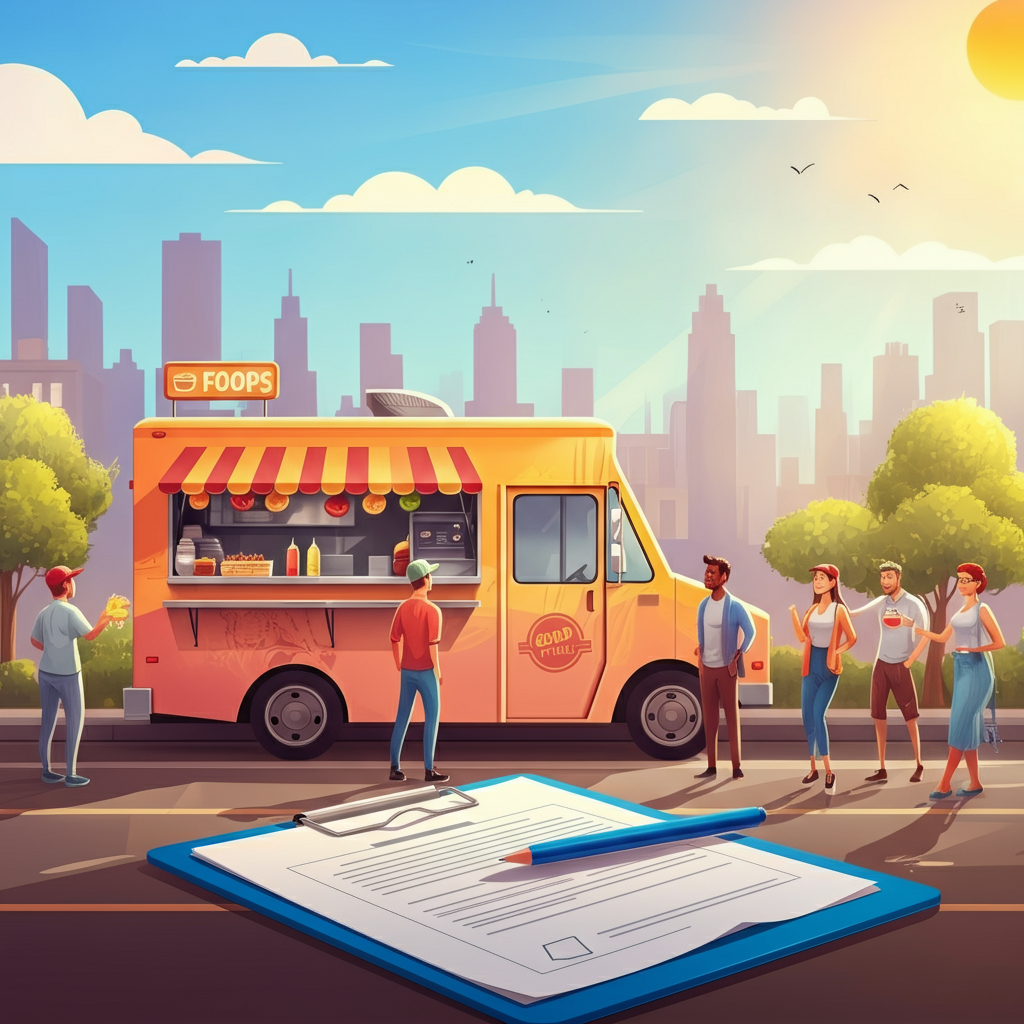Notifications

7 minutes, 22 seconds
-272 Views 0 Comments 0 Likes 0 Reviews

Starting a food truck can be an exciting venture, but one crucial step you can't afford to skip is obtaining a food license. A food license ensures your food truck complies with local health and safety standards, protecting you and your customers. If you're ready to hit the road and serve up your culinary creations, this guide will walk you through everything you need to know about getting a food license for your food truck.
Keep reading, whether you're just starting or want to ensure you're on the right track. You'll learn to research local regulations, prepare essential documents, and more.
Before thinking about flipping burgers or serving tacos, you must know the rules. Licensing requirements vary depending on location, so understanding local food truck laws is crucial.
Once you've researched local requirements, it's time to prepare the needed paperwork. Having everything ready can speed up the process and minimize delays.
Organizing these documents with hard and digital copies in a folder ensures you're prepared for submission day.
With all documents in order, it's time to apply for your food license. The process might vary slightly depending on your location, but here's what it typically involves.
Be prepared to pay an application fee. These vary based on location but range from $50 to several hundred dollars. Check if there are options to bundle related permits, as this can help save money.
After applying, the approval timeline can range from a few days to several weeks. Follow up if you experience unusual delays.
An inspection will likely follow after your application is approved to ensure your food truck meets local health and safety standards.
Once your truck passes the inspection, you'll officially receive your food license. Congratulations!
Having a food license isn't a one-and-done process. Most licenses require yearly renewal. Staying on top of this ensures your business remains in good legal standing.
Check your initial paperwork to note the renewal deadline. Many localities send reminders, but you shouldn't rely on them. Create your calendar alert to stay organized.
Renewing typically involves paying a renewal fee and passing an updated inspection if required. Some areas also ask for updated documents, so keep meticulous records throughout the year.
Operating without a valid license can result in fines or suspension of business operations. Renewing on time avoids these costly and stressful setbacks.
Obtaining a food license for food truck sounds overwhelming at first, but breaking it into manageable steps makes the process straightforward. By understanding local regulations, gathering the proper documentation, and staying compliant through renewals, you're setting your business up for success.
Remember, a food license doesn't just protect your business; it builds trust with your customers and shows them you care about their health and safety.

